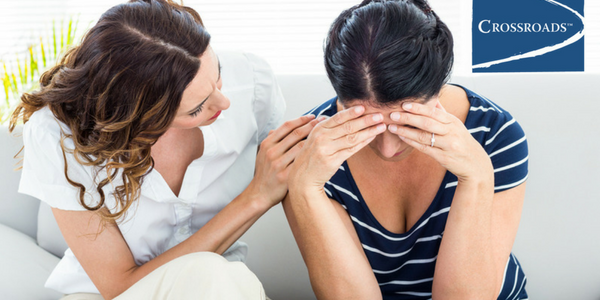Substance use disorders do not affect just the person in active addiction – they affect the entire family and everyone who interacts with the person. As a loved one, it can be hard to resist the urge to blame yourself for their addiction or feel as though you played some part in it. But you are not to blame, and it is not your fault. There are three guiding principles in addiction recovery that are important to remember for loved ones: “I didn’t cause it; I can’t control it; and I can’t cure it.”
Addiction has Many Causes
Addiction is a disease and is not caused by one single factor. It can’t be tied back to a specific gene, virus, or cause. There are many contributing factors ranging from genetics to environment to social influence. You can’t say that because you did or didn’t do something that a loved one developed an addiction. It doesn’t work that way.
Remind yourself that you didn’t cause it. You can’t control another person’s actions or decisions. Yes, you can influence them – as can everyone else around them – but ultimately it is their decision.
Treatment is a Critical Part of Recovery
As much as you may try to control the situation by making excuses, cleaning up after the person, loaning them money, or even stopping enabling them, what helps the most is getting them into an addiction treatment program. Your efforts can only take them so far, and recovery is not something you can tackle on your own. They need professional help and a structured, evidence-based program to help them overcome addiction and the challenges they face so that they can embrace recovery.
One way you can help to get them into treatment is by holding an intervention and sharing your concerns in a constructive way. You can express how their addiction has impacted you and how much you want to see them get better and remember who they wanted to be. Give them an opening and opportunity to get the treatment they need and let them know that you will support them along the way.
Get Support for Yourself
While you may not be able to control someone in active addiction’s choices or decisions, you can control your own and the impact you let them have over you. There are many support groups and educational programs for family and friends of those struggling with addiction. Connect with others who understand first-hand what you are going through and can offer guidance and support.
Attending therapy or support groups for yourself can help you to learn more about addiction and see that you are not to blame. You can learn how to overcome the challenges you’re facing associated with a loved one’s addiction and find out how to better support them in entering treatment or progressing in recovery.
Crossroads recognizes the impact that addiction has on families, friends, and others, and that they need support too. Through educational series and recovery groups, you can get the help you need and play a more integral role in the recovery process. Remember: you are not to blame for a loved one’s addiction, but you can help them throughout their recovery journey and start your own.
[cta]Does someone you know struggle with addiction? Find support for yourself – and them – by contacting Crossroads today.[/cta]


















